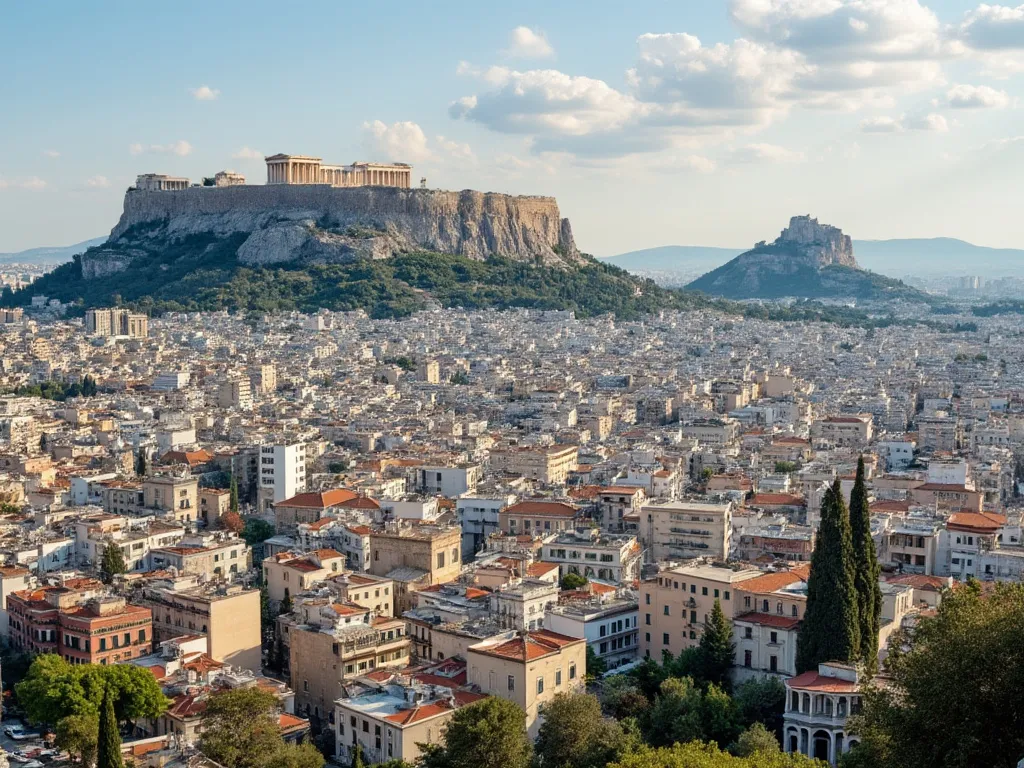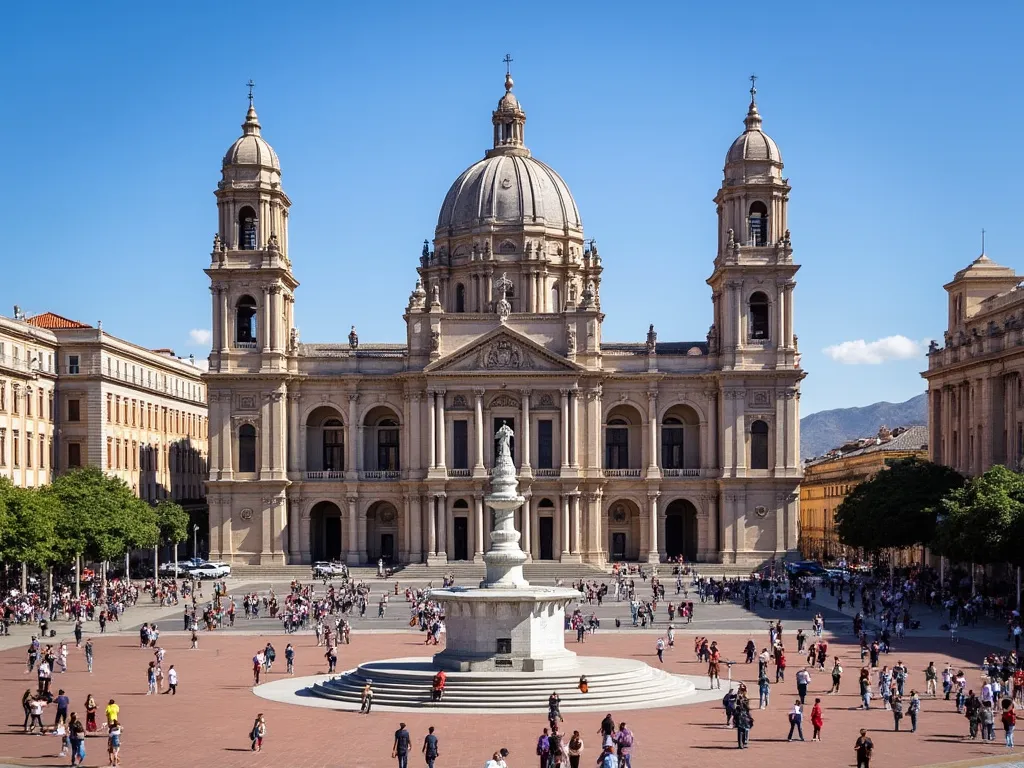
Athens, the capital and largest city of Greece, is a city steeped in history and widely regarded as the birthplace of Western civilization. With a history spanning over 3,400 years, Athens has been a center of arts, learning, and philosophy, significantly influencing the development of democracy, Western philosophy, literature, and drama. Today, it stands as a modern metropolis, blending its ancient heritage with contemporary urban life.
Athens Information
| Country | 🇬🇷 Greece |
| Population | 3,153,781 (metropolitan area, 2021 estimate) |
| Coordinates | 37°58′N 23°43′E |
| Area | 412 km² (159 sq mi) |
| Climate | Mediterranean climate (Köppen: Csa) |
| Language | Greek |
| Currency | Euro (€) |
| Time zone | UTC+2 (EET), UTC+3 (EEST) |
| Proximity to other major cities | Thessaloniki: 502 km, Istanbul: 878 km, Rome: 1,518 km |
Historical Background of Athens
Athens' history is among the longest of any city in Europe and the world. Named after Athena, the goddess of wisdom, the city's Golden Age occurred in the 5th century BCE under the leadership of Pericles. This period saw the construction of many of its most famous ancient monuments, including the Parthenon.
Throughout its long history, Athens has been a center of Greek culture, a Roman city, a Byzantine outpost, and an Ottoman stronghold. It became the capital of the modern Greek state in 1834, following the Greek War of Independence. The city hosted the first modern Olympic Games in 1896 and again in 2004, solidifying its place in both ancient and modern Olympic history.
Geographical Location of Athens
Athens is located in the historical region of Attica, surrounded by four large mountains: Mount Aigaleo to the west, Mount Parnitha to the north, Mount Pentelicus to the northeast, and Mount Hymettus to the east. The city center is situated about 5 miles from the Bay of Phaleron, an arm of the Aegean Sea.
The city's urban area spreads across the central plain of Attica, often referred to as the Athens Basin. This geographical setting has played a significant role in shaping the city's development and its historical importance as a strategic location.
Cultural Significance of Athens
Athens holds immense cultural significance as the cradle of Western civilization. It continues to be a major center of culture, art, and education. Some key cultural aspects include:
- Ancient Greek heritage: Visible in its numerous archaeological sites and museums
- Modern Greek culture: Reflected in its vibrant arts scene, music, and cuisine
- Educational institutions: Home to the National and Kapodistrian University of Athens, founded in 1837
- Contemporary arts: Numerous galleries, theaters, and cultural events
The city is also known for its contribution to literature, philosophy, and political thought, having been home to influential figures like Socrates, Plato, and Aristotle.
Economic Importance of Athens
As the capital and largest city of Greece, Athens plays a crucial role in the country's economy. Key economic sectors include:
- Tourism: A major contributor to the local and national economy
- Services sector: Including finance, insurance, and real estate
- Shipping industry: Piraeus, Athens' port, is one of the largest in Europe
- Technology and startups: Growing sectors in the city's economy
- Government and public administration
Interesting Facts About Athens
- Athens is one of the oldest continuously inhabited cities in the world
- The city's metro system, opened in 2000, doubles as a museum with archaeological artifacts found during its construction on display in many stations
- The Acropolis is visible from almost every part of Athens
- Athens has experienced a significant population boom, growing from a small town of about 4,000 people in 1834 to a metropolis of over 3 million today
- The city hosted the first modern Olympic Games in 1896
Tourist Attractions in Athens
Athens is a major tourist destination, offering a wealth of historical and cultural attractions:
- The Acropolis: An ancient citadel located on a rocky outcrop above the city, home to several significant ancient Greek buildings, most notably the Parthenon
- Ancient Agora: The center of ancient Athens' commercial, political, and social life
- Plaka: The oldest section of Athens, known for its picturesque streets, neoclassical architecture, and traditional Greek tavernas
- National Archaeological Museum: Housing some of the most important artifacts from ancient Greece
- Temple of Olympian Zeus: A colossal temple dedicated to Zeus, king of the ancient Greek gods
- Syntagma Square: The central square of Athens, home to the Greek Parliament building
Conclusion on Athens
Athens stands as a testament to human civilization's enduring legacy, seamlessly blending its ancient past with a vibrant, modern present. As a city that has witnessed the birth of democracy, nurtured great philosophers, and continues to be a center of culture and learning, Athens holds a unique place in world history. Today, it faces the challenges of a modern metropolis while preserving its invaluable heritage. For visitors and residents alike, Athens offers an unparalleled experience - a living museum where ancient wonders coexist with contemporary urban life, making it a truly remarkable destination in the heart of the Mediterranean.
 Avarua
Avarua
 Baghdad
Baghdad
 Astana
Astana
 Asunción
Asunción